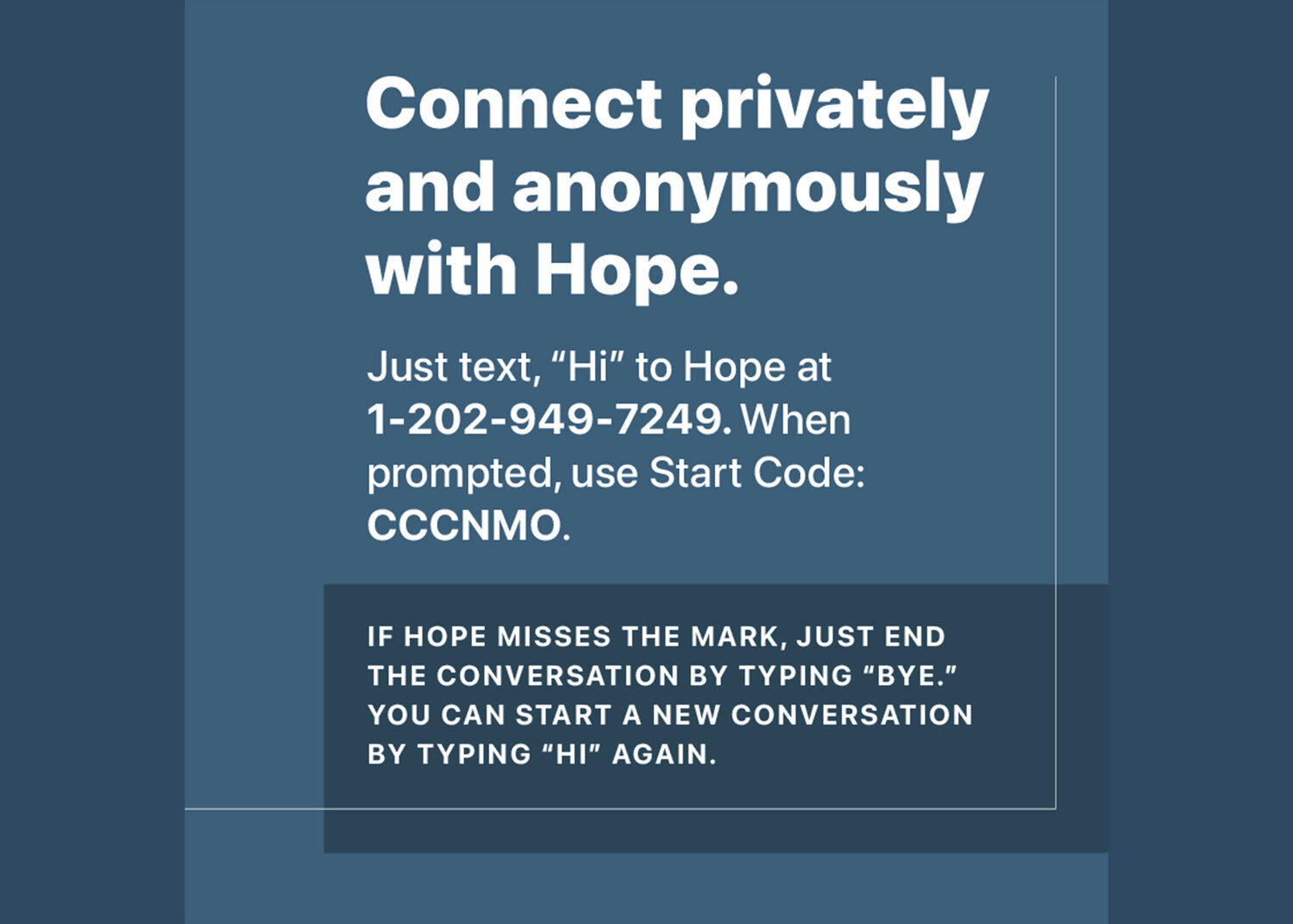Encounter at Catholic Charities: Unlocking joy and peace through counseling services

“Frustration is better than laughter, because a sad face is good for the heart.”
—Ecclesiastes 7:3
In this scripture verse, we are drawn into what appears to be an obvious contradiction — a sad face being valued as something good.
Known as a man of unparalleled wisdom, King Solomon included this statement in his ruminations on life intentionally.
What, then, is he asking us to understand about the relationship between sadness and the heart in this verse?
A sad face can cover a multitude of circumstances: lack of confidence, lack of support, unhealthy relationships, loss.
Our sad face reflects our hurts.
Yet, in 1 Peter 5:7 we are called to “cast all your worries on him because he cares for you.”
It is a comforting call, but the challenge remains to cast our burdens and anxieties on him.
When you look in the mirror or catch a glimpse of yourself in the reflection of a window and see sadness, what is your response?
Do you look into the sorrowful eyes and grant yourself justification for your somber appearance?
Do you try to perk up your face with a well-meaning smile and a straightening of the shoulders?
Are you surprised to see emotions in the reflection you thought you were hiding well?
Our reflections tell the story of our “self” — sad face and all — but how do we acknowledge, accept and respond to dig to the root of those emotions?
Oftentimes, the answer is two-fold — we can lean on our faith in God the Creator of all that is good, and when the door is locked, we can seek help for our minds and bodies with professional mental health services.
Our God loves us beyond our limited comprehension, and he desires for us to lead a life of joy and peace.
His joy and peace are innate; independent of the possessions we have, whether or not someone likes us, receiving credit for our work or going on a dream vacation.
Joy and peace reside in the heart and the soul and are paramount to achieving mental wellness.
When we feel discouraged, our faith may waiver and we may feel that we have little joy or peace.
When the key of faith does not unlock a stream of peace and joy in our heart and soul, we may need to call a locksmith.
A mental health professional who will listen without judgment regarding your circumstances and behaviors can help you unlock the doors and discover (or perhaps rediscover) your inner strengths to alleviate the worry, angst and confusion you may be dealing with.
Mental health professionals work with you, guiding rather than directing you towards positive change.
You are a team of two that, together, agree upon a treatment plan that includes goals that are broken down into clearly-defined objectives.
In finding a mental health professional that honors your faith as part of your treatment plan, you can trust that your mental health care will not compete with your spiritual practices and beliefs, but rather compliments each to find true healing.
Mental health professionals can be social workers, counselors, psychologists or psychiatrists who hold advanced degrees in social work, education and/or psychology.
Licensed mental health professionals (look for the acronyms “LCSW,” “LMFT” and “LPC”) can engage in therapy with their clients, assess clients and are credentialed by state and/or national certification exams.
Many mental health professionals can be accessed in-person or via telehealth, a convenient option for those living in rural communities, or simply more comfortable pursuing care outside of an office setting.
At Catholic Charities, we are committed to providing excellent mental health care services by providers that value and honor their client’s faith.
We strive to make our services accessible and affordable.
We’ve outlined many “frequently asked questions” about therapy and what to expect on our website, where you can learn more and even schedule a free consultation with a provider.
So, how is a sad face good for the heart?
When we recognize our troubles and allow them to be seen by a mental health professional, the lock to our heart is recalibrated and the key of faith can again unlock the peace and joy that God has placed in our souls.
When a mental health professional can help us see the strengths that we have forgotten about or others have dismissed and, accordingly, we have too, we can then use those strengths to reclaim ourselves as being “fearfully and wonderfully made” (Psalms 139:14).
If you, or someone you know, are experiencing a mental health crisis we encourage you to contact 9-8-8, the suicide and crisis lifeline available 24 hours a day, 365 days a year.
Crisis line workers can provide callers with information to lessen the severity of a crisis and connect them with local resources for continued care.
9-8-8 is not a line to call to receive therapy, but to receive immediate information about available mental health services.
May is Mental Health Awareness Month! This article was written by Ché Wilson, who served as an MSW Practicum Student for the Counseling Services program at Catholic Charities of Central and Northern Missouri.
In her time at Catholic Charities, Ché worked alongside then director, Dala Hemeyer, to observe client care and explore the link between faith and mental health access and care.
Comments
Other items that may interest you
Services
The Catholic
Missourian
2207 W. Main St.
Jefferson City MO 65109-0914
(573) 635-9127
editor@diojeffcity.org






